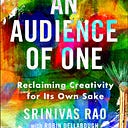The 5 Universal Laws of Success According to a Data Scientist
4 min readDec 22, 2019
- Lazlo grew up in Romania in a communistic regime and moved to the US for grad school. One interesting perspective he has on life in the US is how overwhelmed with choices people are, starting from groceries and food products, all the way to education. Although you can perceive that in communism having limited choices is limiting, it also has a liberating component.
- He thinks that education and access to knowledge is a key to social mobility and changing one’s social status. In Europe, education is more available than in the US which positively reflects on social mobility.
- Laszlo thinks that since he got a free education, it is up to him to provide free education for his children. Many other parents may agree, but the fact of the matter is that few can afford it and students will end up with debt because there is no other option.
- Laszlo was investigating success for a long time and he argues that many studies of success are missing a key component which is a control group. If only successful people are analyzed the sample is skewed and conclusions biased. In his studies, he included a variety of examples with different success levels to show the full picture.
- One common misconception about success is that it is the direct consequence of performance. However, performance is something we work on improving, while our success is how our community reacts to our performance. In some areas (e.g. running) performance is measurable and directly translates into success. However, most of us operate in the areas in which success is not easily measurable and possible to directly relate to performance.
- In areas where performance is not as directly correlated to success, network effect. Laszlo spoke about how in art the value of an object is not a function of its material value or practicality but the way it is perceived by the art community. Similar is true for other areas, which highlights the key idea that we need to position ourselves in the right network.
- Metrics can be a double-edged sword but Laszlo thinks that our lives are too complex and impossible to be captured by one metric. If anything, we are using too few metrics and we need to diversify them.
- Our Performance may be bounded but success does not have to be. Even top athletes have minuscule differences in performance. Therefore it makes sense to invest in the network!
- Success breeds success analogous to the principle of rich getting richer. If you already have some sales, you are more likely to get more. The same goes for citations and other metrics. Getting the initial success is the hardest part, but after that, a big portion of success is trust and reputation. Having Initial success indicates that the future growth rate will be higher, but the rate of growth will depend on the quality of the product and fit.
- Key things that make a team with great performance are diversity and the ability to pay attention to each other- horizontal communication. For the innovative teams, on the other hand, the key thing is a leader that drives the story, while others are helping to bring his vision to life.
- Laszlo spoke about the question of whether or not young people are more creative. In the domain of science, most scientists make their main discoveries early on. However, the data also shows that scientists produce a lot more work in the early periods of their careers so some of that work ends up being their most influential.
- Every project that you start has an equal probability of being your most successful and represents something like a lottery ticket. You add your knowledge or expertise and then you can measure its success. The product of the success and the initial probability of success is a q-factor. That is the number that shows your ability to develop a random idea into a successful product. What is common for many successful people is that Not every project they start succeeds (on contrary, they have a lot of unsuccessful projects), but once they hit a good one they have a high ability to develop it into something epic.
- To be unmistakable, according to Laszlo, you need to recognize that your performance is up to you but your success upon the community.
We post summaries of our podcasts like this every week in our private listener tribe. It’s completely free to join. Click here to learn more.
